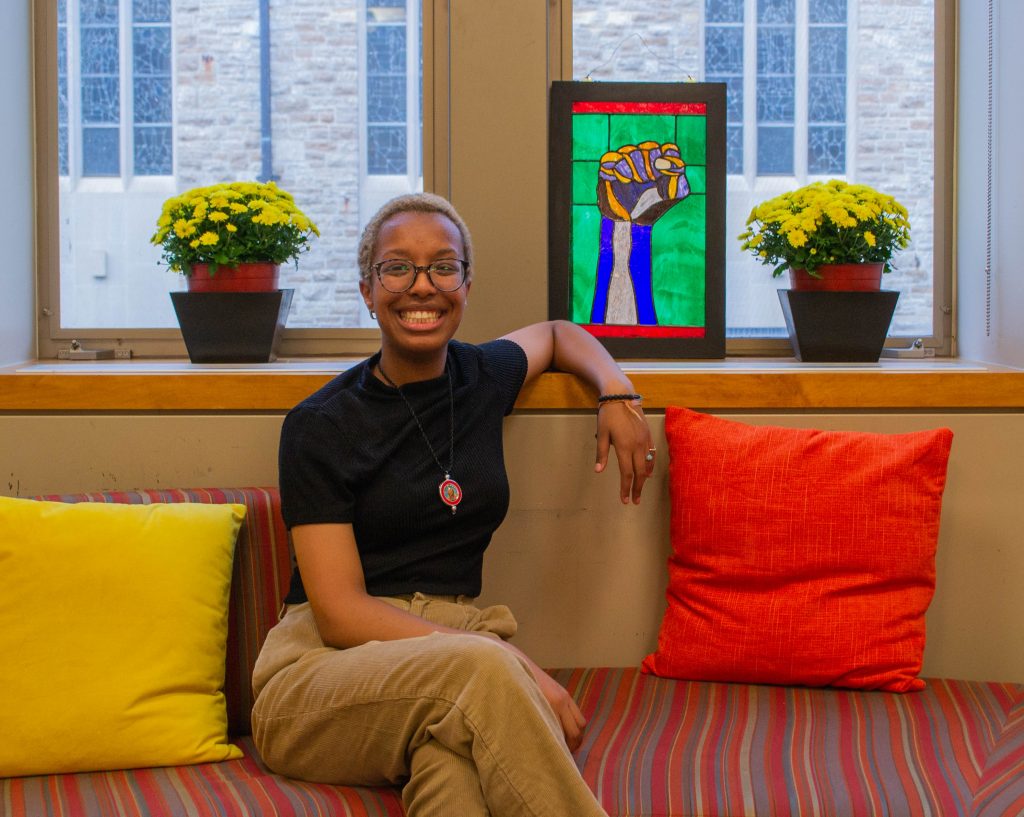George Floyd Fellowship: Let us Reap What we Sow
Throughout the 2022-23 academic year, the three recipients of the St. Olaf College George Floyd Fellowship for Social Change developed a project focused on advancing racial justice, social justice, and equity. Each of these students — AD Banse ’23, Jordan Embry ’23, and Ruhama Solomon ’24 — share what inspired their project and the impact they hope it has had.
Ruhama Solomon ’24 used her George Floyd Fellowship to highlight the role that Black artists and writers play in environmental advocacy. As an activist and artist herself, Solomon wants to bring more attention to environmental racism through a Black lens. The goal of this project, titled “Let Us Reap What We Sow,” is to facilitate an open dialogue on environmental racism through conversation, art, and poetry.
In order to do this, Solomon invited two established artists, Sagirah Shahid and Michael Kleber-Diggs, to St. Olaf College to share their work. Following the presentation, Solomon held a question and answer panel for the audience to interact with Shahid and Kleber-Diggs.
Shahid is a poet, arts educator, and performing artist from Minneapolis. She is the recipient of awards, fellowships, and residencies from the Loft Literary Center, Minnesota Center for Book Arts, Twin Cities Media Alliance, Shangri La Museum of Islamic Art and Muslim Advocates, Strive Publishing, Wisdom Way, Nicollet Lanterns, and 826 MSP.
Kleber-Diggs is a poet, essayist, literary critic, and arts educator. His debut poetry collection, Worldly Things, won the Max Ritvo Poetry Prize, the 2022 Hefner Heitz Kansas Book Award in Poetry, and the 2022 Balcones Poetry Prize, and was a finalist for the 2022 Minnesota Book Award.
Solomon says she began writing poetry seriously in 2020 — the same year her activism began to strengthen in the wake of George Floyd’s murder. Through poetry and performance, Solomon began to bridge arts with social economic racism.
“I believe that I am continuing to learn the best methods and practices while advocating for the natural world and those who are affected by the harms of it. Being a George Floyd Fellow has helped me take the time to understand what it takes to be an environmental advocate and how to improve on it. Socioeconomic status goes hand in hand with racism and the environmental injustice problem tenfold,” Solomon says.
For Solomon — who is majoring in political science and environmental studies with a concentration in international relations — this is only the first chapter of her activism. She plans to continue pushing for environmental advocacy in the curriculum and having less of a Eurocentric lens in the classroom. From Solomon, “If people want to help people of color, they have to listen to people of color and be receptive to their feedback.”
